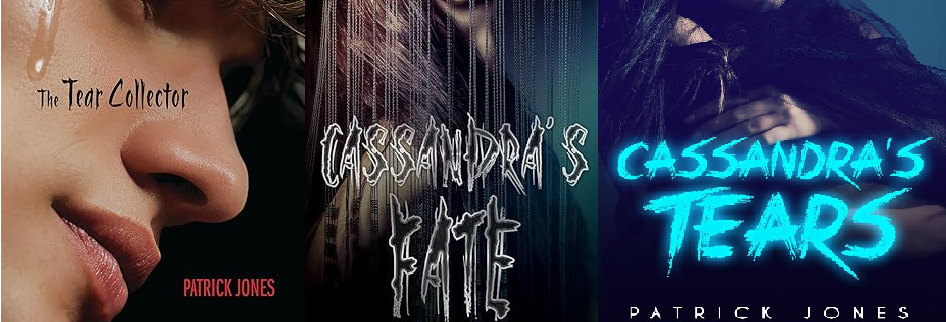readers within the first few pages. How important do you think the beginning of a book is in enticing the non-reader?
| “How important do you think the beginning of a book is in enticing the non-reader? About the same importance as the first kiss in a relationship. It had better be a good one.” Will Weaver |
Neal Shusterman: I make a point of hitting the reader with something — usually in the very first line — that grabs them and pulls them in. For example The First line in Full Tilt is “It all began the night we died on the Kamikaze.” Wait a second, the reader says, It began the night we died? What’s The Kamikaze?” Immediately the reader’s asking questions, and the only way to find the answer is to read on. In the first paragraph of Scorpion Shards, I drop a grand piano through a glass-roofed restaurant. While it’s an important story point, it’s also me sort of winking at the reader, saying “I’ve just dropped a piano through the roof. Now do I have your attention?”
Rachel Cohn: You really only have the first few pages to reel in a non-reader, so that first page in particular is make or break, and should optimally reflect action as well as a distinct and recognizable teen voice.
Gordon Korman: I’m a staunch believer in this. Readers, especially reluctant ones, are constantly asking themselves “Why should I bother?” and I like to answer that question early. The characters may be great, but, on page one or two, we don’t really know that yet. This is the time when an author is most likely to lose readers.
Julie Ann Peters: I don’t think it’s everything, but it is critical in the early stages of developing and encouraging a lifelong reader. If you don’t engage a reader within the first page, you’re asking for faith and commitment. People develop the habit of reading over time with repeated satisfaction in the books they read. Habitual readers, if not captivated immediately, assume the book will get better. They trust the writer. They’re willing to commit. For how long depends on how much patience they have; how much time; how often they’ve been disappointed, or pleasantly surprised by a book. Even for reformed reluctants like me, so much depends on individual taste, on timing, and mood. If I don’t fall into a story or attach to a character right away, I have to decide if I’m willing to try. I’ll try harder if it’s an author I’ve read before and know I can trust. I’ll commit to a chapter or two, at least. But reading is an activity I consciously choose, so I’m not going to waste my limited life force on a chore. You have to understand the mindset. Books aren’t everyone’s lifeblood.
David Lubar: A strong opening is crucial. I’m competing for attention with TV, movies, video games, sports, sleep, and everything else a kid might want to do. Forget about the first couple pages. I have to grab the reader in the first sentence, and never let go. The hook is just the first step. If you pick up any of my novels and read the last sentence of a chapter, you’ll probably find a cliff hanger. But it’s important to play fair. If the bloody knife that’s raised at the end of chapter three is revealed to be covered with ketchup at the start of chapter four, that’s okay once or twice. If it happens too often, the reader will toss the book and pick up a joy stick.
Kathe Koja: You want to begin the story not necessarily at the beginning, but at the part where things have started to happen, where there’s motion, action, flow. You can always tell the reader the beginnings later, when s/he’s already interested in the characters. When I see someone on the street engaged in something weird or funny or puzzling, I don’t think, Gee, wonder how he came to be doing that? I think WHAT is that guy doing? In books it’s just the same.
Brent Hartinger: These folks are looking for any reason to not to read, and let’s face it, they’ve probably been burned my many ponderous, pretentious, self-indulgent books in their past. I’ve had to laugh lately because several reluctant readers had commented to me, “I like your books, but I wished you’d skipped the first chapter and gotten right to the action.” I re-read some of my first chapters (which are, like, eight pages long!), and thought to myself, “Huh?! You won’t even allow me eight pages of set-up?!” But one thing writers can do is jump right into a hopefully-engaging action sequence, which sort of “buys” you some time to then introduce the main character and the dramatic set-up.
Ben Mikaelsen: Hooking the reader is everything. We live in a fast-paced Nintendo world where there has to be immediate gratification. If a book starts slowly, often the reader will set the book down and never return. If this happens, how good the book is remains academic.
Cherrie Bennett: We feel like it is our responsibility to grab them within the first five percent of the book. That is, if the book is two hundred pages long, we give ourselves ten pages to completely snare the reader. And we try to make the first few pages distinctive: voice, humor, incident, whatever. We know we’ve got one crack at the reader and that there are thousands of other books in the library and in the bookstore for him or her to read.

